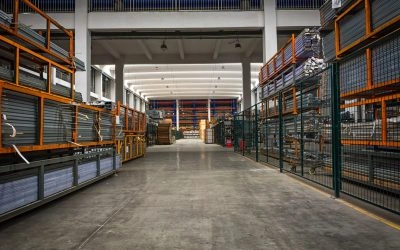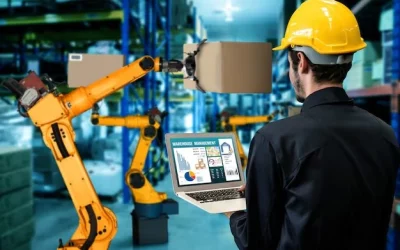Advantages
One of the key benefits of Industry 4.0 is the increased productivity it brings. By automating repetitive tasks and allowing machines to make decisions based on data analysis, companies can increase their output while reducing costs. Additionally, the use of IoT devices allows companies to monitor their production processes in real-time, enabling them to identify and resolve issues more quickly. Another advantage of is the improved quality of the goods and services produced. With the use of sensors, cameras, and other monitoring technologies, companies can track and analyze production data to identify areas for improvement. This leads to more consistent and reliable products, as well as a reduction in waste and defects. Overall, Industry 4.0 offers a range of benefits for various industries, including increased efficiency, productivity, and profitability, as well as improved safety and quality.
Use Cases
- Smart factories: Industry 4.0 enables factories to become more automated, efficient, and intelligent. Smart factories use sensors, data analytics, and AI to monitor and optimize production processes in real-time.
- Predictive maintenance: By using IoT sensors and AI algorithms, machines can be monitored continuously to detect any anomalies and predict maintenance needs. This reduces downtime, improves safety, and prolongs the life of machines.
- Quality control: Smart factory enables real-time monitoring of production processes using computer vision, which allows for quicker identification and resolution of quality issues. This reduces waste, improves product quality, and enhances customer satisfaction.
- Supply chain optimization: With Industry 4.0, companies can track their inventory levels, shipping status, and other supply chain data in real-time. This allows for better coordination and optimization of logistics, reducing costs and improving delivery times.
- Personalized manufacturing: Enables mass customization, where products can be customized to meet individual customer needs. This is possible by using data analytics, AI, and robotics to automate the production process and provide personalized products at scale.
- Human-robot collaboration: Robots and humans can work together seamlessly, allowing for more efficient and safe production processes. Robots can perform repetitive tasks while humans focus on more complex tasks, improving overall productivity and quality.
- Augmented reality: Industry 4.0 allows for the use of augmented reality to enhance worker training, maintenance, and repair processes. This technology provides workers with real-time information and guidance, improving their effectiveness and reducing errors.
Wrapping Up
In conclusion, Industry 4.0 represents a major shift in the way goods and services are produced and consumed. By leveraging advanced technologies such as AI, IoT, and cybersecurity, companies can increase their efficiency and competitiveness, while also improving the quality of their products. While there are challenges that must be addressed, the potential benefits of Industry 4.0 make it an exciting and transformative development in the world of manufacturing and service industries.




